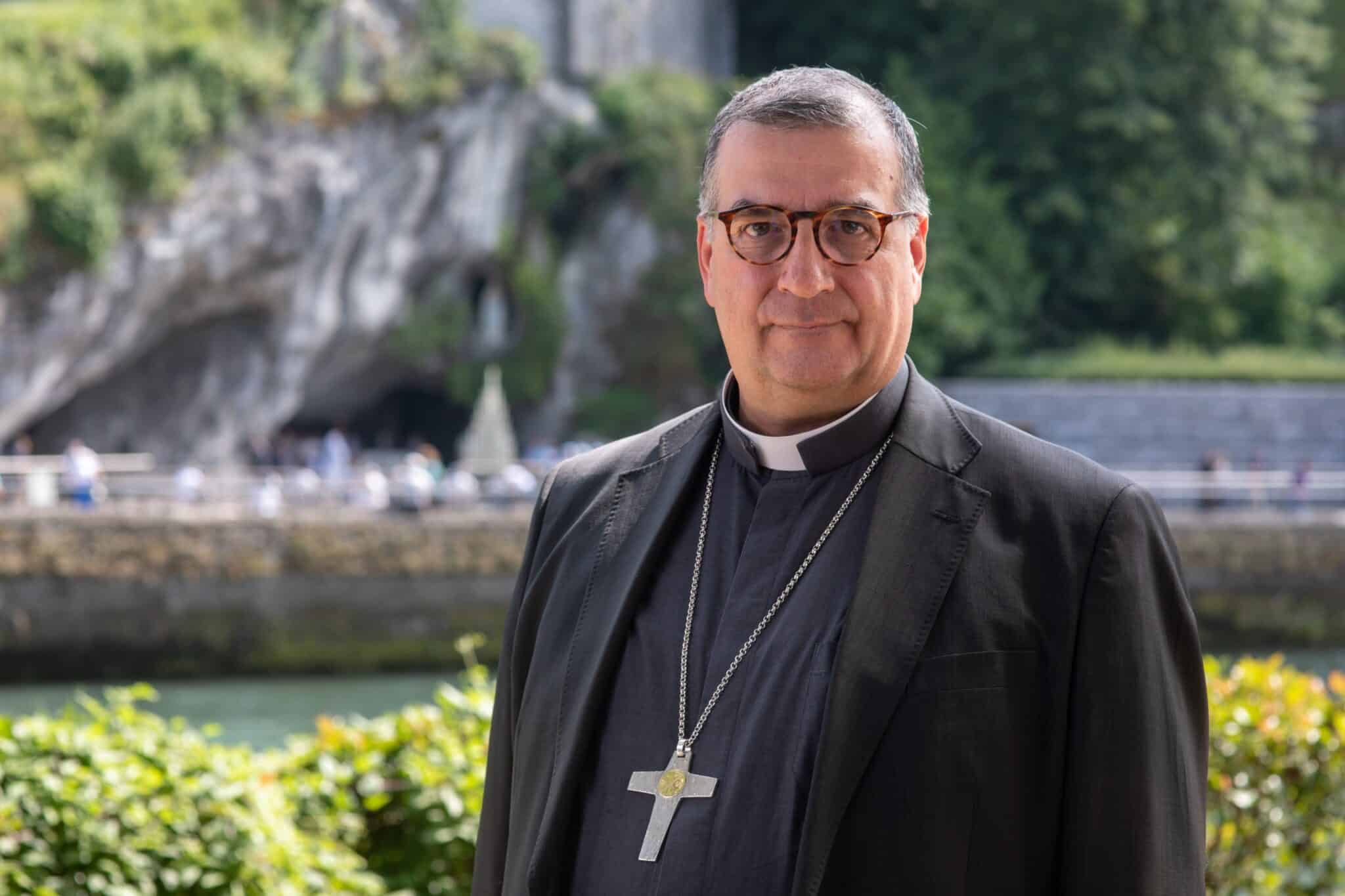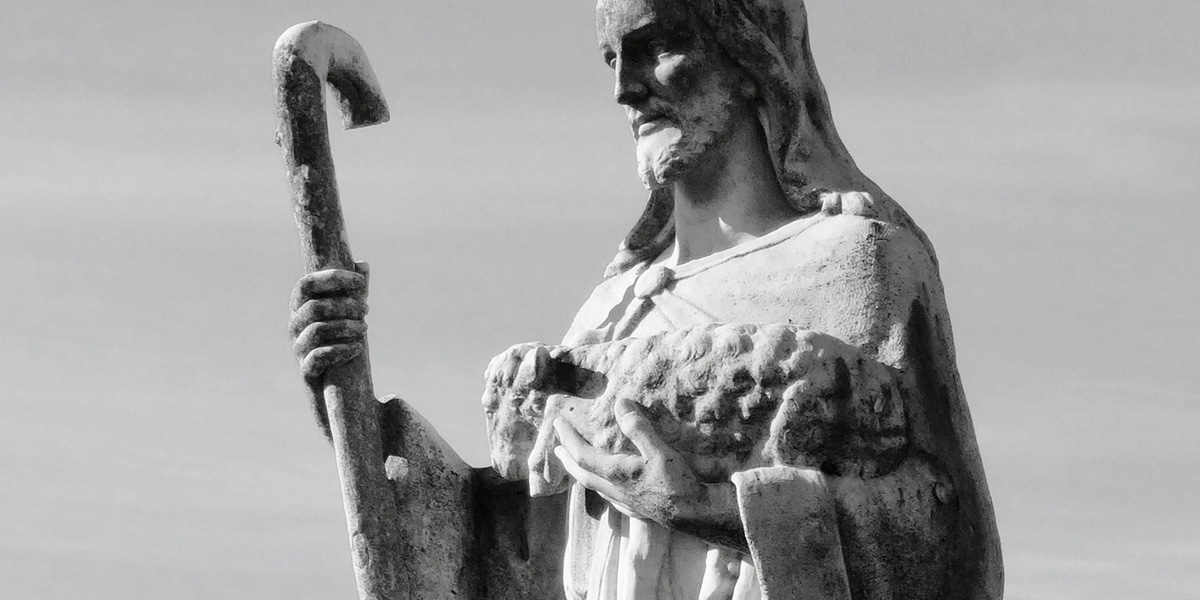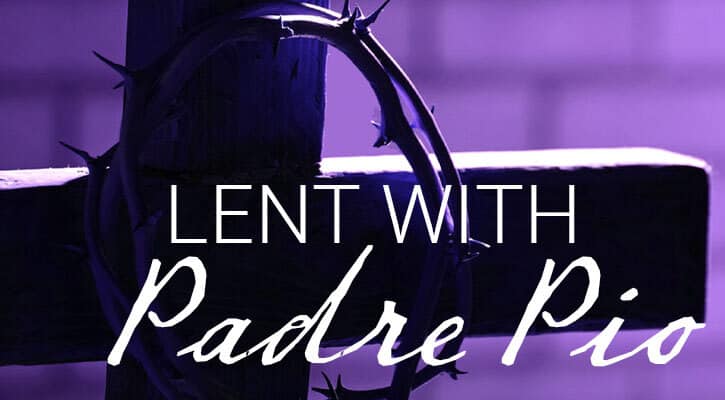Divorced Catholics long for understanding and acceptance. Here’s how the Church can help.
The institution of marriage is in trouble today. The divorce rate is anywhere from 50 percent for first marriages to 80 percent for subsequent marriages. Perhaps, as a result, more and more couples are choosing to live together without bothering to get married.
The Catholic Church’s response has been to get proactive about better preparing engaged couples before they marry. The United States Conference of Catholic Bishops’ (USCCB) National Pastoral Initiative for Marriage has made strengthening Catholic marriages a top priority.
My own Diocese of Phoenix and other dioceses around the country are revisiting their marriage requirements, lengthening preparation periods and examining couples closely, looking for trouble spots in their relationships and families of origin—indications that they may not be ready for the vocation of marriage just yet.
As a divorced Catholic, I am happy to hear about the Church’s new vigilance. But what is the Church doing for us? Annulling past marriages and saying, in effect, “We hope you do better next time,” is hardly adequate. Many parishes offer post-divorce workshops designed for the first months after a divorce. But the pain of divorce goes on for many years.
The Church—the institution as well as the individuals—needs to minister to the millions of divorced Catholics by both changing ingrained attitudes and reaching out in love. Yes, the Church is and should be pro-marriage, but, like its Lord, it must also love and support those whose marriages have failed. It’s a fine line to walk, but it is necessary.
As the survivor of divorce after 30 years of marriage, I know there needs to be a healthier dialogue within the Catholic Church between those who have never divorced (including our clergy) and those who have. Here are seven things you may not know about divorce.
1) Non-divorced Catholics often come across as judgmental of the divorced. Perhaps they don’t mean to. But there is a definite, although largely unconscious, attitude in the Church that the divorced are less spiritual, less committed to marriage and/or less forgiving than the long-term married.
Non-divorced Catholics need to be careful of assumptions, to discard any trace of judgment toward the divorced. Since I have “been there, done that” when it comes to being judgmental, I can address this issue personally. It is too easy for those who have never experienced the desperation and sorrow of a failed marriage to believe that “they could have done something to save it.”
Let me assure you, the divorced Catholics I know (including myself) are spiritual, forgiving people who are committed to family and to the institution of marriage. And they did all they could to save their marriages. It is time for all of us in the Church to stop judging the divorced.
2) Not every marriage was ‘joined by God’ even if it took place in a church. This may seem like a rationalization, but Jesus’ statement in Matthew 19:6 (“Therefore, what God has joined together, no human being must separate”) does not apply to all marriages. Many of us, looking back, realize that God was simply not a part of our decision to marry. In my case, I never asked God, never gave God the chance to stop my headlong (and headstrong) determination to get married. And God was trying to get my attention.
There were real problems. My intention was to head to a war zone for a year, and friends and family counseled me to wait. But I would not listen.
We have all attended enough weddings to recall what the priest or deacon always asks a couple at the beginning of the marriage ceremony: “Do you come here freely and without reservation?” For most of us divorced Catholics, the answer to that question, if we had been truthful, was “no.” How can anyone claim that a particular marriage was “joined by God” if that was not the intention of the parties getting married?
3) The divorced do not have to justify themselves. Even if a divorcing/divorced person is very close to you, you do not know what really happened. Therefore, you should refrain from making comments or asking prying questions. Perhaps we divorced Catholics are overly sensitive, but certain statements and inquiries are like rubbing salt into a very sore wound.
I have been asked, “Did you try counseling or Retrouvaille?” as though I would smack my head and say, “Gee, why didn’t I think of that?”
Yes, I tried everything I could think of.
“Why can’t you just forgive him?” is another gem, to which I answer that forgiveness is not the same as a pardon. People have commented, “But you seemed like such a happy couple.” That’s what we wanted you to think; that’s what we wanted to believe.
The bottom line is this: Such questions and comments just hurt, and they are unfair. If a divorcing or divorced person does not want to confide in you, do not prod him/her to tell you what happened. Just love that person. And give him/her the benefit of the doubt that he/she tried everything to make the marriage work.
There are a variety of reasons why marriages fail. The “big three” most of us think of are adultery, addiction and abuse, but the real reason behind most failed marriages is simple indifference, often on the part of one spouse. There is no way a husband or wife can save a marriage single-handedly. When a marriage fails, no amount of effort, enabling or denial will save it.
It is wrong to ask for details before you support your divorced friend, family member or parishioner. People should not have to justify their actions before they are loved for who they are.
The psychological counseling and spiritual direction I received during my divorce made me a healthier person than I ever was before. I have worked through the deep problems caused by my dysfunctional childhood. I have faced and forgiven everyone who helped shape my early years in negative ways. And I understand and embrace my individuality. Yes, divorce was a painful passage to go through, but I am a better person today because of it.
5) I don’t need to marry again to be happy. I get a lot of comments, concerns and advice about finding someone when people learn I have been divorced for eight years. I really am happy as a single person, and not at all lonely or bitter about the past because I choose to remain single.
I understood right from the beginning of my new life as a single person that, in order to be happy in a new relationship, I would have to be happy just being me and being single. My attitude now is, “If it happens, it happens.” In the meantime, please accept that I am fine as a single person. And for goodness’ sake: Don’t try to fix me up with anyone!
6) I hope my divorce makes you question assumptions about your marriage. Does that shock you? It shouldn’t. It means that I love you and I love the institution of marriage. But healthy marriages don’t just happen. I was sure my marriage would never end. At the same time, I was unaware of what makes a healthy marriage and very much in denial about our problems.
My marital problems went a lot deeper than most, but every marriage needs constant care. And every marriage can use a tune-up now and then: a few counseling sessions, a Marriage Encounter weekend or a retreat together. Marriage takes a lot of work. I am delighted when friends and coworkers tell me that watching what I went through eight years ago or hearing me talk now about my divorce compelled them to take a second look at their own marriages, strengthen what was weak and recommit themselves to the relationship. The divorced have a great deal to teach the married about what a good, healthy and Christian marriage really is.
7) Every marriage ends. The marriage covenant ends when this life ends. Jesus tells us in Luke 20:34-35 that there is no marriage in heaven. Marriage is an earthly institution with a heavenly purpose. Marriage is a training ground wherein we cosmic youngsters learn about the love that has existed from all eternity within the Holy Trinity.
Its purpose is to train us to give up our selfish tendencies, to care for another as we would care for ourselves, to take our place in the Kingdom of God. Marriage is a foreshadowing of our eternal relationship with God and with one another. Marriage is a wonderful thing, but it is not a forever thing. Knowing and remembering that should deepen not only the relationship with your earthly spouse, but also your love for your heavenly spouse, Jesus.
As a divorced Catholic, I have taken great comfort from the story of Jesus’ encounter with the woman of Samaria at Jacob’s well (John 4:4-42). This poor woman had been married five times and was now living with yet another man. That’s a lot of failed relationships—even by today’s standards!
Jesus’ tenderness toward her and his sympathy for her situation are apparent. Did he deliberately go to that spot at that unlikely time of day because he knew she would be drawing water then? Did he send the disciples away to get lunch in the town so he could talk to her alone? I don’t doubt it.
Jesus never spoke to this woman or any other hurting person in ways that increased their pain. He offered this “living water,” himself, which was what she had been searching for in all her relationships.
It is time for the rest of the Catholic Church to do the same.
Divorce and the Catholic Church
The first thing Catholics should know is that divorce is not a sin that should keep a divorced Catholic from receiving the sacraments. A divorced or separated person is not excommunicated and is still a Catholic in good standing. The only reason for excommunication after divorce is remarriage without going through the annulment process.
Before a divorced person can remarry in the Catholic Church, he or she must obtain an annulment by a Catholic diocesan tribunal. Obtaining such a decree does not mean that the marriage never took place; it is a determination that a sacramental marriage did not take place.
This does not mean that the children of that marriage are illegitimate or that the couple was “living in sin. ” It means that, in that particular case, the marrying couple had little or no idea what Christian marriage was all about or that there were deep problems from the beginning of the marriage, either in the couple’s relationship or in their families of origin.
Therefore, the Church may determine that it was impossible then for the couple to enter into a truly Christian marriage. Divorced Catholics who are seeking an annulment should talk to their pastors, who will direct them to the proper contacts at their diocese.
The annulment process can give divorced Catholics three gifts:
CLARITY, by helping them see the why’s and how’s of their failed marriage in a new light.
HEALING, by allowing them to work through their anger and guilt and come through to a better place spiritually and emotionally.
TIME, by forcing the divorced person to wait before making any more relationship decisions.
Recently divorced people are especially vulnerable to needing companionship, support and sympathy. The first person of the opposite sex who provides that is going to be very attractive, but the newly divorced person does not need that kind of complication in the healing process. The newly divorced person needs breathing room after a marriage ends.
The dismal divorce statistics after second and third marriages are proof that too many divorced people simply don’t wait long enough to recover completely. Taking part in the Catholic Church’s annulment process is one way to ensure that a good healing process has begun. If a divorced Catholic does meet someone he or she might want to marry, that person will not only have better tools for discerning whether this is a good relationship, but will also have the Church’s blessing on a second marriage.









11 thoughts on “Seven Things Catholics Should Know about Divorce”
Pingback: Annullment Civil Law Catholic? – ejcl.org
Pingback: Meghan Markle’s Relationship History: Once Married Once Not – leicestershirevillages.com
Elena, a toxic marriage is not one in good standing with God. It is never God’s will that His children should suffer. Suffering happens, but it is not His doing, or His will. He created marriage so that we would have help in this earthly life, we would be stronger together, we would rely on each other, we would help one another to follow His path and live a good life by example. A marriage that leaves you feeling alone, weak, and lost, despite all your efforts, is not a marriage as God intended. Have courage, Elena. For yourself, and for your children. Pray to Him. Trust Him. Follow Him. Don’t keep on the path to perdition, just because you’re married to it. God’s love is more powerful than any earthly bonds. My thoughts and prayers are with you as you navigate this difficult moment.
I left my husband nearly 3 years ago due to emotional, physical and financial abuse. I don’t think it’s God’s will for anyone to remain in a dangerous or degrading situation. Fortunately, I had my parents’ support and was able to escape to another country. It might not be so easy for others. As a Catholic, I accept Jesus’ teachings on remarriage after divorce, so I’m committed to remaining single. I just focus on my spiritual life, such as prayer and attending Mass, raising my child and my career.
Was married in the Catholic church 12 yrs Divorced and remarried!
Have been married for 34 yrs now!!
I just went back to church recently.Why make it so hard to return.
Please seek a good and faithful priest and present your situation to him, and see if you can get your marriage convalidated (blessed). You do not want to be just “divorced and remarried.” You want the first marriage properly annulled. Otherwise, you could be in mortal sin, especially taking communion. God bless.
My marriage is so abusive, I couldn’t even see it, until some friends enlightened me. Being in a marriage for 44 years, I have the equivalent of Stockholm Syndrome, but I am lonely, hurt, depressed, unmotivated and in constant pain. My husband is emotionally and verbally abusive with occasional physical abuse, and I believed I had to stay here until death. He does absolutely nothing to work on himself or our marriage, and I have tried everything. I cannot feel love for him anymore, no matter how I have tried.
But articles like yours help me to see the light, and I have been confiding in family and friends who are helping me. Thank you very much! For the first time in a very long time, I feel hope, and I also know the Lord is guiding me and that he wants more for me than this.
You need t leave. God doesn’t want us in marriages like you described. Find a great priest. Talk to him for support. Talk to a counselor who has experience with domestic abuse…and my friend, emotional abuse is wrong. wrong wrong.
So gather your army of support: The church, a priest, friends, counselor trained in emotional abuse, and you will be putting on the armor of God…
Thank you for this excellent article. I am a Catholic priest and about to preach on the difficult passage in St Matthew on marriage/divorce. Your words have really helped me. God bless you and your children. Fr Clive
I was baptized and raised Catholic. After 16 yrs of marriage, I divorced due to infidelity. I remarried outside of the church to a non catholic, a year later. We have been married for almost 20 yrs. I was told, by a Catholic priest, that my sins cannot be forgiven nor can I receive communion unless an annulment is approved. Heartbroken, I felt anger, thinking that Jesus wouldn’t turn me away like that if I was truly repentant of my sins. I’m worried about dying in mortal sin. I’m willing to undergo the annulment process if there is a chance of returning to my church. Any assistance would be truly appreciated.
Thank you for this article. I have been divorced for over 10 years and I have felt everything you described. I lost EVERYTHING in my divorce. My church family, the family life that I had envisioned for my 2 children, my friends, my home- EVERYTHING. And yet I still left- so imagine what I was living in my married life if having NOTHING was preferable to staying where I was.
To this day, I’m still tortured with messages from inside and outside the church that somehow the children and I are second class citizens. I even had a co-worker tell me to my face that she disapproved of her son dating a girl who was a product of divorce- because she was likely damaged goods. Imagine the pain in feeling like there will be people out there who will hold a prejudice towards your children for a situation that they had no part in causing. Imagine the guilt and shame that a parent feels knowing that.
I have found no comfort in the Church or reading any type of Christian Article that gives me hope, apart from this one, and a few others- mainly written by divorced women.
Churches tho? Will tell me on one hand that God Loves Me and I am precious in his sight- while simultaneously offering me no hope for a future that doesn’t include crippling loneliness and being ostracized and treated as second class within the community.
All my children and I ever wanted, before, during and after divorce was to be wanted and to be treated with decency, love and respect.
I will not stay in situations where we are treated otherwise- but just because we leave when those basic human conditions are not meant- doesn’t mean it doesn’t hurt us.
Comments are closed.